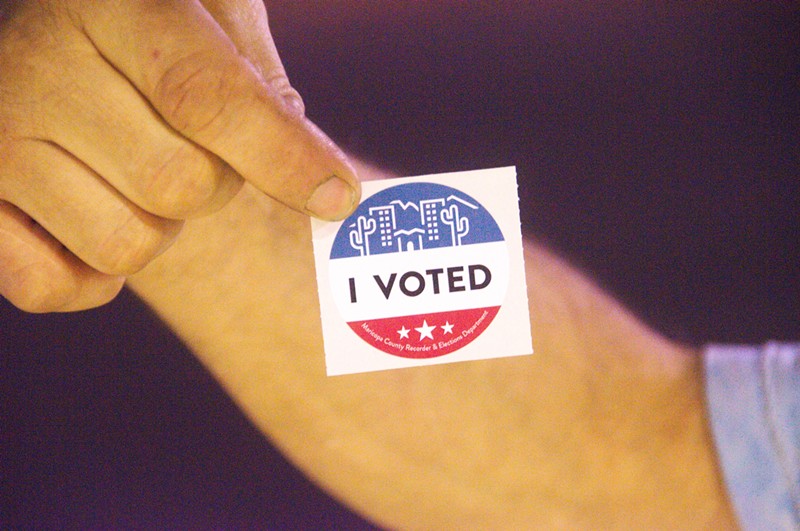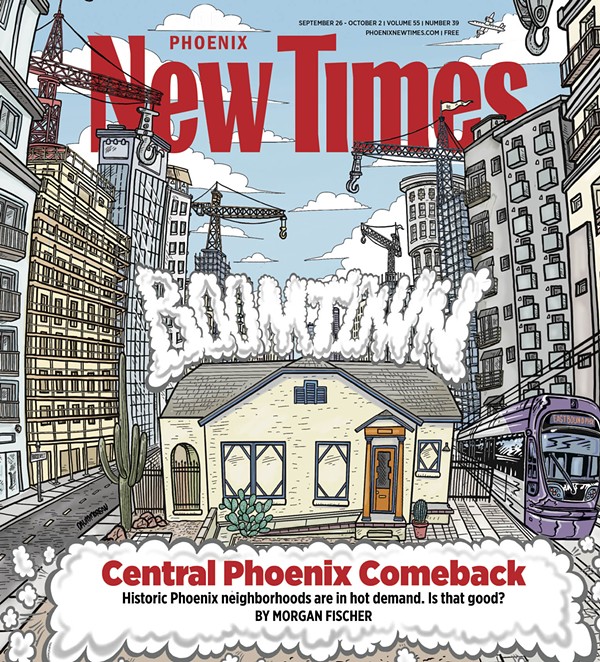The Arizona Supreme Court ruled that roughly 97,000 voters who are improperly registered to vote because of a glitch in the state’s driver’s license database won’t be limited on who they can vote for in November because no law authorizes county recorders to change their registration status.
The voters are erroneously registered to vote because of the way the Motor Vehicle Division provides driver’s license information to the state’s voter registration system. The voters affected by this particular coding error are people who first obtained their Arizona driver’s license before October 1996 and then were issued a duplicate replacement before registering to vote sometime after 2004.
Since 2005, Arizona has required all voters to prove their citizenship when they register. But a 2013 U.S. Supreme Court ruling bars the state from barring any person who registers to vote without such proof, but swears they are a citizen, from voting in federal races. So, there is a small class of voters known as “federal only,” who are only allowed to cast ballots on national races, like president and Congress.
Maricopa County Recorder Stephen Richer flagged the problem with the driver’s license database earlier this week, then asked the Arizona Supreme Court to limit those voters — who have been casting ballots for decades and aren’t suspected of being noncitizens — to voting only in federal contests unless they provide proof of citizenship in the coming weeks.
Secretary of State Adrian Fontes, a Democrat, said the 97,000 voters skew heavily Republican, and most are between 45 and 60 years old. He opposed Richer’s request, and told the Supreme Court there was no legal mechanism to change the status of so many voters — and it wasn’t legal to do so this close to the Nov. 5 election. His position was supported by the Arizona Republican Party and GOP legislative leaders, as well as a coalition of voting rights advocates.
The Supreme Court agreed that nothing should be done to those voters’ registration status right now.
“(W)e are unwilling on these facts to disenfranchise voters en masse from participating in state contests,” Chief Justice Ann Scott Timmer wrote in an order issued early Friday evening. “Doing so is not authorized by state law and would violate principles of due process.”
However, the court did note that state law still allows for changes to a voter’s registration status if he or she is challenged on an individual basis, effectively laying out a path for political campaigns to use existing mechanisms to prevent thousands of voters from casting ballots in state legislative contests and on ballot measures.
Fontes praised the ruling and said it was a win for voting rights in Arizona.
“Today marks a significant victory for those whose fundamental right to vote was under scrutiny. The court faced a stark choice: to allow voters to participate in just a few federal races on a limited ballot, or to make their voices heard across hundreds of decisions on a full ballot that includes a variety of local and state offices,” Fontes said in a written statement. “We deeply appreciate the Arizona Supreme Court for their prompt and just resolution.”
This story was first published by Arizona Mirror, which is part of States Newsroom, a network of news bureaus supported by grants and a coalition of donors as a 501c(3) public charity.












